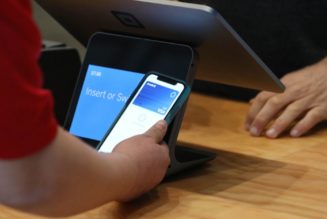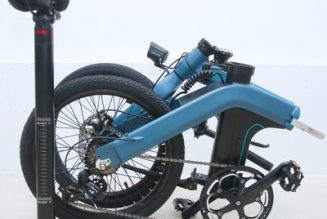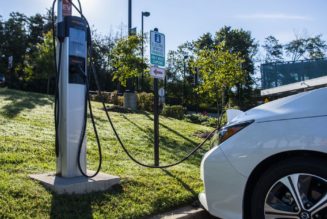
Honda revealed the name of the first of two electric SUVs it plans to sell in North America, and it’s one that many have already guessed, thanks to a recent trademark application. The vehicle will be called the Honda Prologue, and it will go on sale in the US and Canada starting in 2024, Honda of America sales chief Dave Gardner confirmed to reporters last week.
As a name, Prologue makes sense considering it’s meant to be the introduction to Honda’s efforts to completely electrify its lineup by 2040. It’s also, notably, a synonym for “Prelude,” the name of Honda’s iconic sports coupe from the 1980s.
The Prologue will be the first of two vehicles that Honda is co-developing with General Motors, using the US automaker’s Ultium battery packs. The other vehicle will carry the Acura nameplate and will also be developed jointly with GM, but the company didn’t reveal any new information about it at this time.
“With the Prologue, our goal is to provide a highly competitive product with the functionality to meet the diverse needs of our customers,” Gardner said.
Previously, Honda has said that it will design the exteriors and interiors of the new EVs, while the drivetrain will be engineered by GM to support Honda’s specifications. These vehicles will be manufactured at GM’s North American plants, with sales expected to begin in the 2024 model year.
Honda’s interest in the name Prologue was already reported back in April when Car Buzz noticed that the automaker filed a trademark application with the United States Patent and Trademark Office for the name. According to the filing, Honda said it would use the name to cover “land vehicles, namely, automobiles, battery electric vehicles, and structural parts for the foregoing.”
Honda is staying mum on any other details or specs about the Prologue at this time, although Gardner did say that the automaker was targeting an annual sale volume “roughly” between the Honda Passenger and Honda Pilot SUVs.
But Honda doesn’t plan on stopping with just the two EVs it is developing with GM. Gardner said that in the second half of the decade, Honda will release a series of EVs built on the automaker’s own “Honda e-Architecture.” These vehicles will help Honda reach its goal of 40 percent of sales comprised of battery-electric and fuel-cell vehicles by 2030, 80 percent by 2035, and 100 percent by 2040.
“In short, our zero emission focus has begun,” Gardner said.
Honda’s electric lineup is extremely limited as compared to other automakers. The company recently discontinued its Clarity EV, though it will continue to sell hydrogen and plug-in hybrid versions of the vehicle. And its Honda E city car, which went on sale last summer, is only available in Japan and Europe.
Gardner acknowledged that Honda has a lot of catching up to do with electric vehicles, both to its competitors as well as with the numerous regulations that have been put in place to curb the sale of gas-powered vehicles.
“While we haven’t been perceived as leaders in recent years, we’re not neophytes in the electrified space,” he said, citing the hybrid Honda Insight, as well as the defunct EV Plus and the discontinued Clarity, as examples of the foundation on which Honda plans to build.










